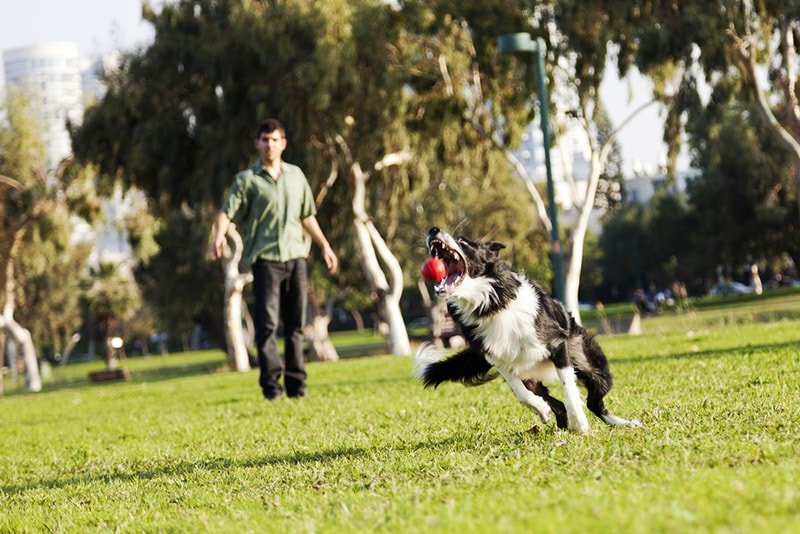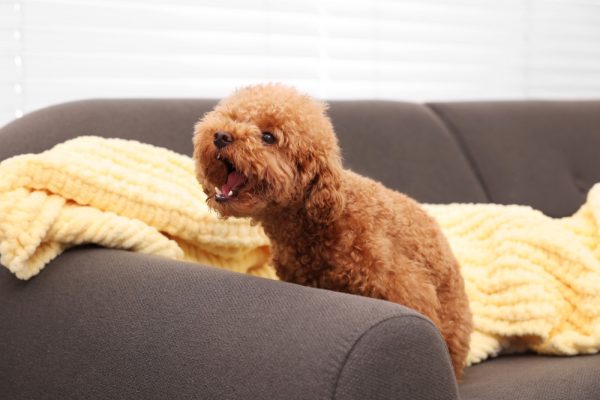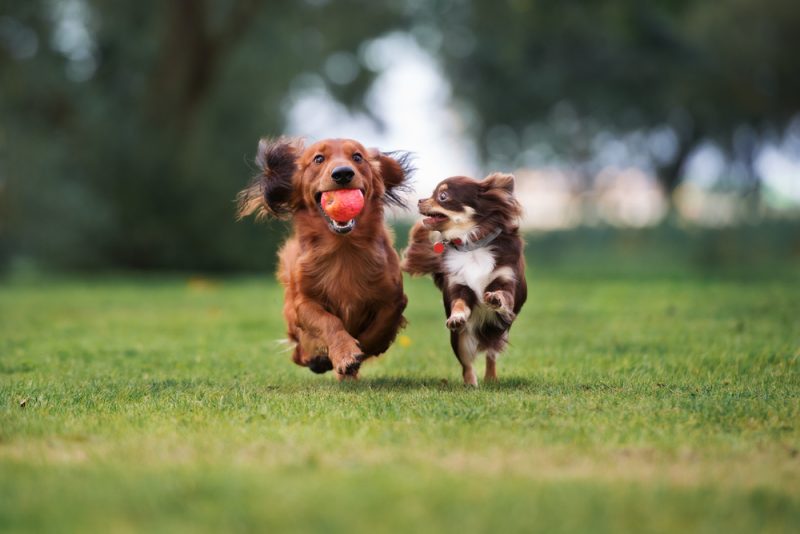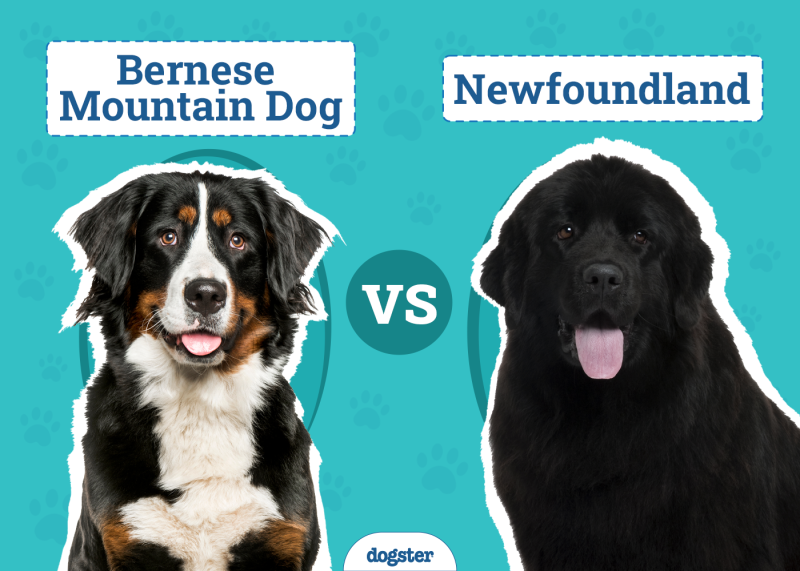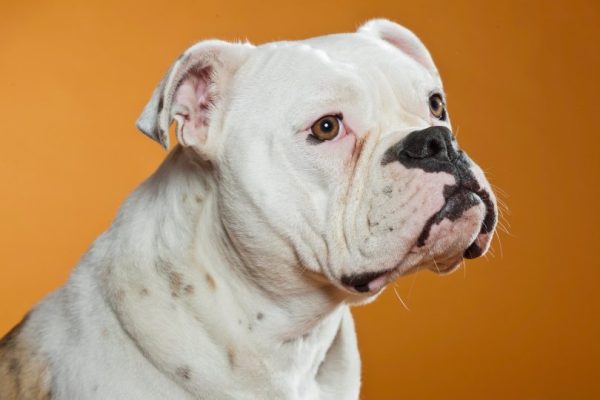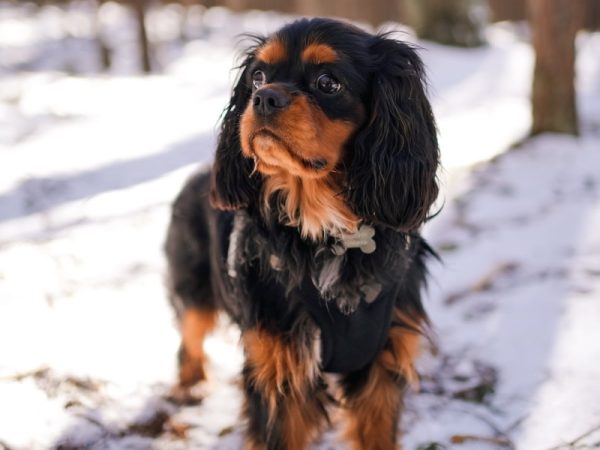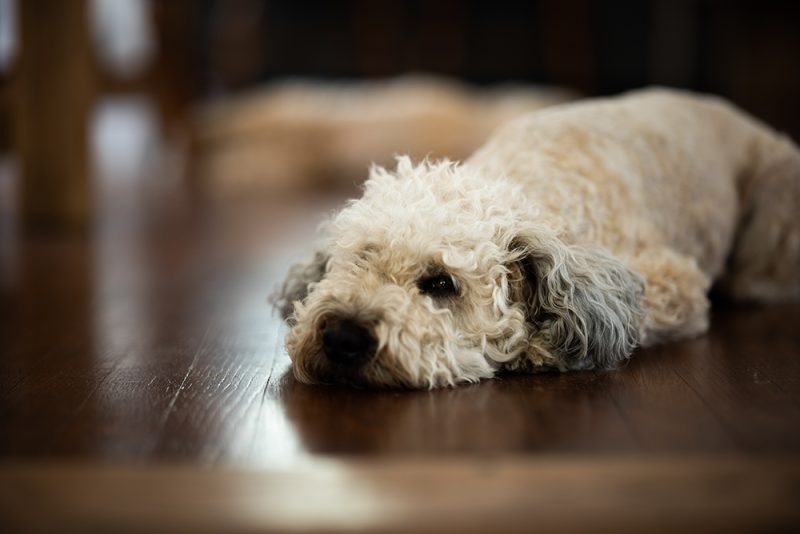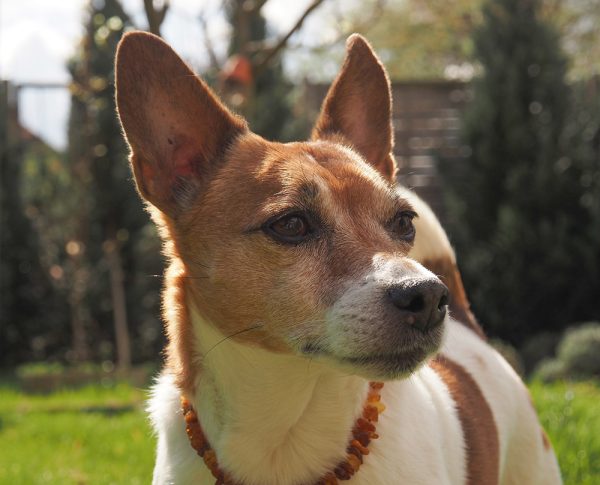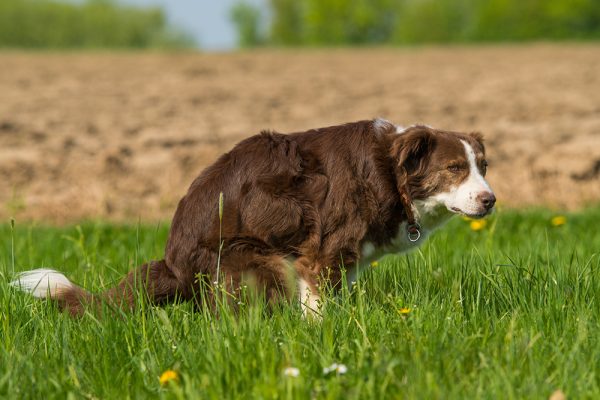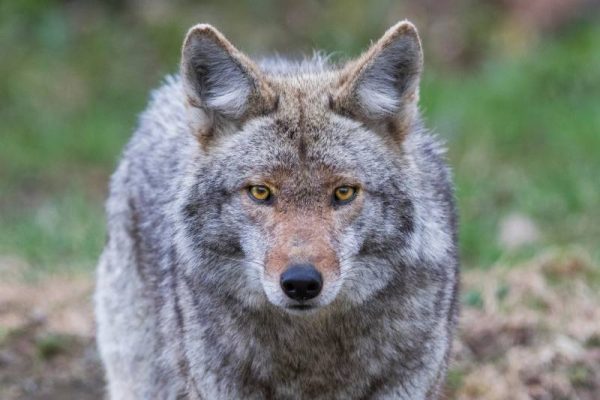In this article
Hunting dogs are energetic, lively, intelligent dogs. They have been bred to spend long periods outside and they are typically trained to either track, hunt, take down, or retrieve game. Whether you have a hunting dog, and it is out of hunting season, or you have a hunting dog as a pet, these types of breeds need a lot of stimulation.
As well as physical exercise, you should find ways to keep your four-legged hunter engaged and active.

Types of Hunting Dogs
There are dozens of breeds of hunting dogs with many different breeds from different regions. This class of sporting dog can be further classified according to the method of hunting. This can further help you determine the best types of activities to keep your hunter engaged and entertained.

- Tracker – Tracking dogs use their sense of smell or sight to track their quarry, chase it, and then bring it down. Sighthounds include Greyhounds and Irish Wolfhounds, and these have incredible vision. If they see movement, they will generally give chase. Scenthounds use their sense of smell and this class includes the Beagle. Scenthounds do well with nosework and scent-related games.
- Retriever – Retrievers are used by hunters to find downed prey and return it to them. Skilled retrievers can identify the positions of multiple shot birds for several hours and be able to return to the right locations at the end of the hunt. This type of hunting dog likes games like fetch where they are encouraged to bring items back to their handler.
- Pointer – Pointers were traditionally used to locate prey and then direct their companion to them. Although we now most often associate this type of hunting dog with armed hunters, they would have once worked in tandem with Greyhounds or other sighthounds, pointing out the hunt for the other dog to chase and take down.
- Springers – Springer Spaniels and Water Spaniels are two of the most popular of the springer breeds. They would find flocks of game birds and then spring into action to flush the birds out. The springing action would cause the birds to fly away, making them easier for hunters to take out. Most springer breeds love water and love to run, so anything outdoors that involves water is a good option.

The 15 Games for Hunting Dogs
There are a lot of games that can be played with hunting dogs, from the basic but enjoyable fetch to more involved flyball or lure coursing games. Some can be played at home while others will need to be played out of the house or in specialist locations. Below are 15 games to keep your active ball of energy entertained and engaged.
1. Fetch
Fetch is a classic game and one that lots of dogs, regardless of breed or type, enjoy playing. It is a great way to provide healthy activity for your pup without you having to take up trail running. You can start teaching fetch when your dog is still a pup. Start by throwing a treat and encouraging your dog to chase it. Then swap the treat for a small toy. Have a treat ready and when your dog picks the toy up, call them back and give them a treat for returning with the toy.
Once they have the hang of playing fetch indoors, it’s time to take it outdoors. If you have a particularly energetic dog and are struggling to throw the ball or toy, you can buy launchers and other devices to propel the toy further.
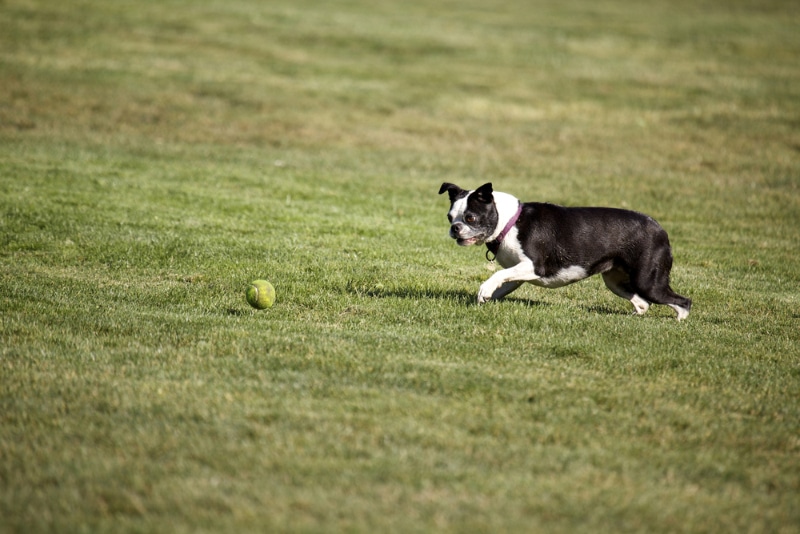
2. Flyball
Flyball is a combination of simple obstacles and the retrieval of a ball. The game is enjoyed by Collies but also by retrievers and other hunting breeds. A team of dogs lines up behind the start line. When the race starts the first dog runs down the lane, jumping over short fences. When they reach the end of the lane, they step on a step that drops a ball. They grab the ball and run back to you so that the next dog can start.
It is highly energetic, great for the retrieval instinct in your dog, and it is fun to watch your dog flying down the lane.
3. The Cup Game
The cup game is a scent game and one that you’ve either played or seen played by humans. Start with two cups. Place a treat under one cup, ensuring your dog watches you, and then mix the cups up. Encourage your dog to find the treat. If they get the right cup, they get the treat. If not, take the treat out and do it again.
If your dog is getting it right every time, you can make the game more difficult by using more cups or using a treat with less of a smell.

4. Play Hide and Seek
Most of us played hide and seek as children, and whatever type of hunting dog you have, you will likely find that it is very skilled at locating you. Either have your dog “stay” in one location while you hide or have somebody hold them while you pick a hiding spot. Take a treat with you. When you’re ready, call your dog or have your play partner let them go.
When the dog finds you, give them the treat. As your dog gets better at the game, you can choose increasingly difficult hiding places.
5. Scented Fetch
Scented fetch is similar to fetch except you will encourage your dog to find the ball or toy using their sense of smell rather than their sense of vision. Let the dog have a good sniff of the object and then throw it as far as you can. This is a good game for training retrieval because you should have your pup sit next to you until the object has landed.
If there are bushes and water, your dog will have to rely on their sense of smell as well as their vision to go and retrieve the object.
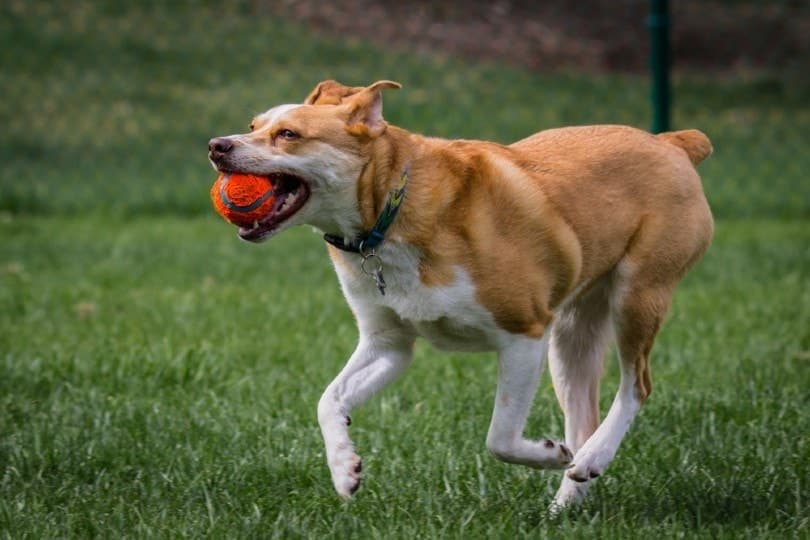
6. Treasure Trail
You can set up a treasure trail through the house and your own yard or garden. You can even use your local dog park or beach. Take small, tasty treats and place them in different hiding spots, and then let your dog hunt them down. You will have to follow your dog to make sure they find everything, especially if you are using dog treats. Otherwise, you will end up with bits of leftover dog food lying around the house.
7. Take Your Retriever Swimming
Retrievers are trained to retrieve from dry ground but also from water and most love to get wet while frolicking in lakes, the sea, or just big puddles. Take your retriever down to a local lake or river and let them swim in the water. If you’re feeling brave, you can always get in with them to encourage them.
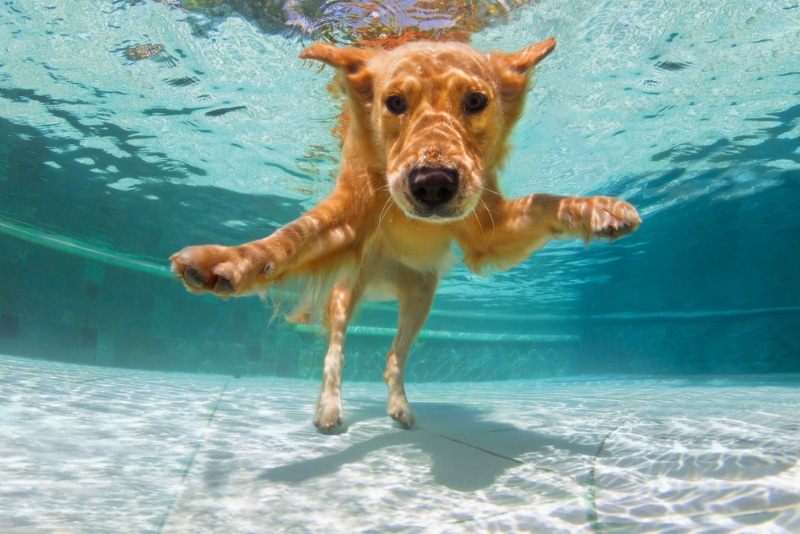
8. Go Dock Diving
Once your dog retriever is comfortable in the water, you can try dock diving. Dock diving sees dogs running to the end of a dock and then jumping as far as they can into the water before swimming back. Training for this typically starts with you throwing a treat or toy into the area near the end of the dock so your dog naturally has to jump in while grabbing it.
Make sure the water is safe and that your dog won’t panic when it lands in the water.
9. Scent Toys
As well as cups to hide smelly treats under, you can buy scent toys that encourage your scenthound to use their incredible olfactory senses. Generally, these are treat dispensing toys that your dog needs to figure out by sniffing. But you can also buy items like balls made from rabbit fur that will have a naturally appealing scent and are great for playing scented fetch with.

10. Scentwork
There are organized scentwork events and competitions that are open to all dogs but are especially beneficial to scenthounds and trackers. Before you join the competition, you can practice and train at home. Put a treat or scented item on the end of a leash and pull it around the house and in the yard before hiding it at the end of the trail. Put your dog on the end of the leash, take them to the beginning of the trail, and see how quickly they find the treat.
The reward for your dog is the treat at the end, or you can offer a game of fetch or tug if that’s your dog’s preferred motivation.
11. Dog Carting
Although dog carting isn’t specifically an event for hunting dogs, it is an energetic sport that a lot of dogs enjoy partaking in. The dog is fitted with a cart and then encouraged to pull that cart around a track or given route. Although big dogs obviously do better with these events, you can get smaller carts for smaller dogs.
Once your dog has got the hang of it, you can find a local dog carting competition to take part in.
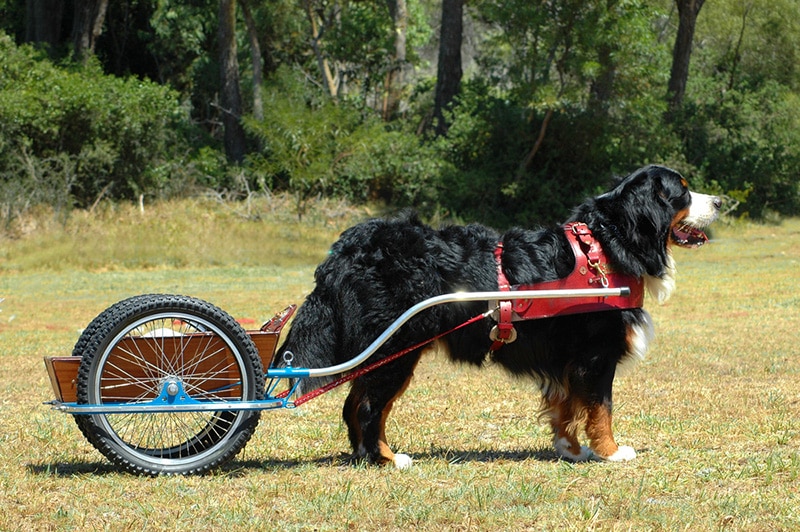
12. Scootering
Dog scootering is especially popular with sledding dogs during the dry season. It is effectively like sledding but instead of pulling a person on a sled, a dog or pack of dogs will pull a person on a scooter. They will pull their load around a designated course or along a chosen path. As well as burning off a lot of energy, this event is good for teaching your hunting dog to listen to commands and obey when out in the wild.
13. Go Lure Coursing
If you’ve ever been to or seen a greyhound race, you’ve seen lure coursing. In this event, a hare-shaped lure is pulled around a course and several dogs give chase. The greyhound is the most commonly used breed in this event because they are sighthounds and are the fastest breed of dog, reaching speeds of up to 40 miles per hour or more.
However, you can find events that welcome and are even geared towards other breeds, so your pup doesn’t have to feel excluded.
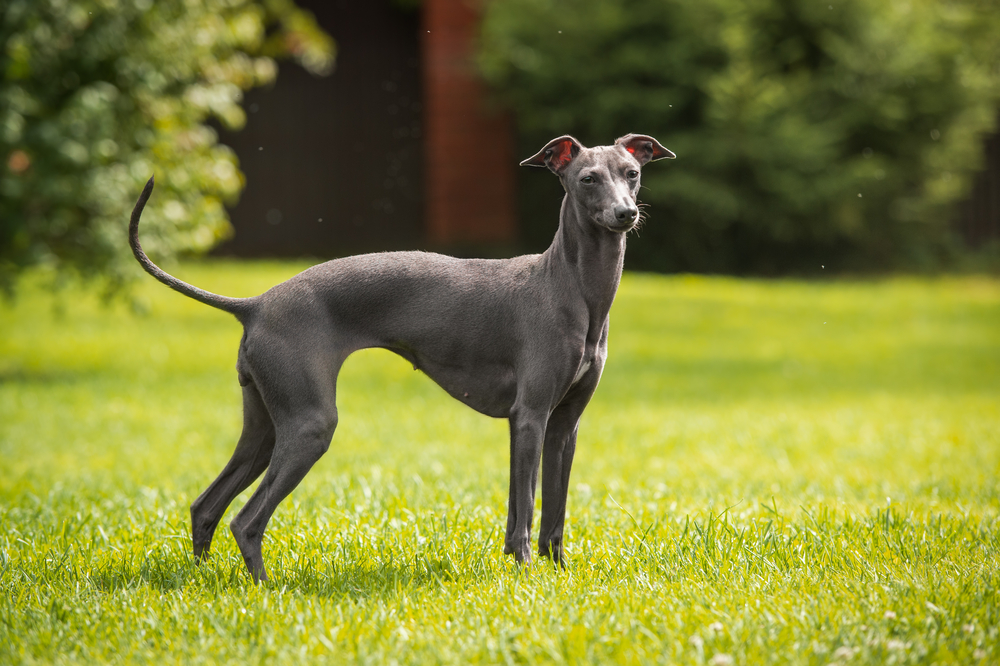
14. Trail Running
Trail running is like very quick hiking with your dogs. If permitted, you can attach your dog to a harness and leash that ties around your waist, leaving your hands free for running. Some trails do not allow this, however, because an out-of-control dog and owner can cause injury to others. Alternatively, train your dog to run alongside you and run with the leash in your hand.
Your dog needs to listen to instructions, so it knows which way to run but it is a great way to exercise those powerful muscles and get you in shape at the same time.
15. Agility Courses
Agility courses are like large obstacle courses for dogs. They incorporate jumps, tunnels, slaloms, see-saws, and balance poles, so they test many different physical elements. While this might not seem like a hunting activity, it will engage your dog’s brain and also provide physical exercise.
You can always introduce elements of scent work, and while most people take their dogs to agility courses, you can buy the equipment to set up your own course at home.
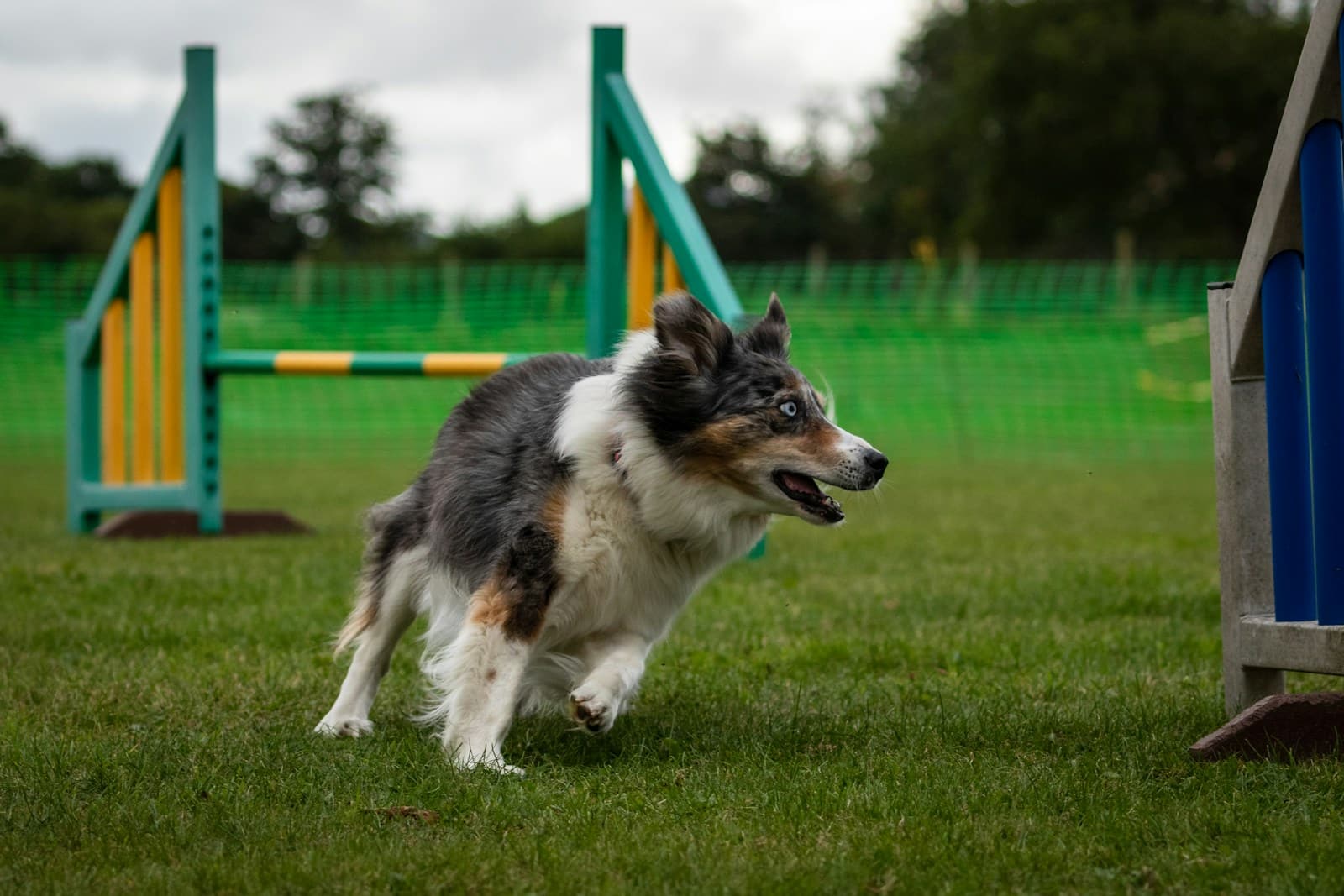

Final Thoughts
Hunting dogs are active, and lively, and they need a lot of physical and mental stimulation to keep them active and engaged. Fortunately, there are a lot of different games you can play, including some at home as well as organized events, that play to the strengths of the different hunting groups.
Above, we have included 15 such games, offering your pup mental stimulation and physical exercise. Ideal to entertain a pet or to keep a working hunting dog active during the off-season.
